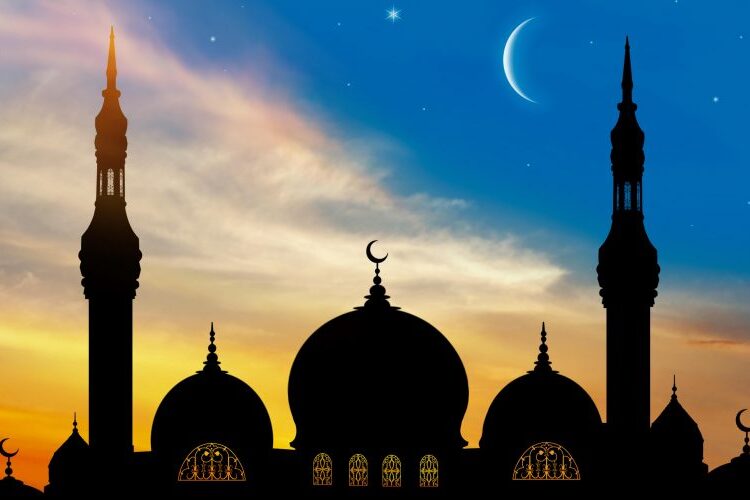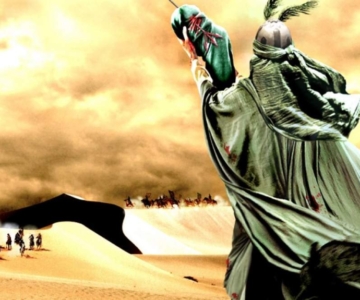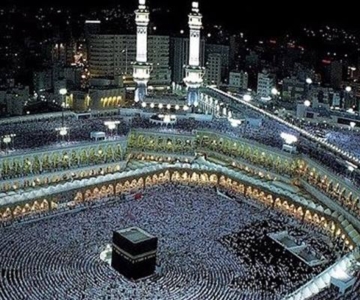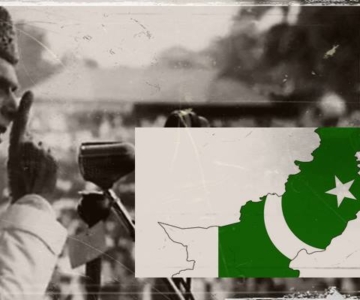Contributed by Sadia Dehlvi
As children we aimed our eyes at the horizon trying to spot the small sliver and once the Ramzan moon was sighted we went around the house greeting all the elders with Ramzan Mubarak. The house would soon be filled with Pheniyan , khajla, dates and other Ramzan specific delicacies for sehri (pre dawn meal) and iftaar. The radio was locked in the cupboard and the television was veiled with a cloth only to be unveiled on Eid. Going to the movies was simply out of question, a childhood rule I still obey.
When we were too young to fast, the elders said we could observe ‘ek daad ka roza’ (one jaw fast) so we eat carefully through the day from one side of the mouth. When one of the children reached the age of ten or eleven, the first fast was observed with festivities. There was a rozakushai ceremony and friends and family were invited for iftaar, a tradition is still observed in most Muslim families.
We were a God fearing family and almost everyone in the family fasted in Ramzan. Those who did not fast pretended to and eat behind closed doors. The dining table in our house was pushed to one side of the room and we kept the traditional floor seating for the special month. Minutes before sunset which is iftar time, every member of the family would sit with their heads covered and hands folded in prayer. We were told that this was the time God would answer our prayers.
The Islamic months also called Lunar months are based on the sighting of the moon. The Islamic calendar known as the Hijri began when Mohammed (pbuh) did hijrat(migrated) to Medina from Mecca. Ramzan is the ninth Hijri month , the month when the miracle of the Quran was revealed by God through Gabriel.
Islam is built upon five pillars: that you worship none else but Allah and accepting Prophet Mohammad as the seal of prophethood, establishing regular prayers, giving of zakat( charity), performing the pilgrimage to Mecca and fasting in the month of Ramzan. Fasting is a Quranic order O ye who believe! Fasting is prescribed to you as it was prescribed to those before you, that ye may (learn) self-restraint.(2:183).
It is known that Prophet Mohammad was the most generous of people, and in Ramzan he was even more generous. His companions described him as a wind that bears gifts. The Prophet said that the best charity in Ramzan is setting things right between people who are in conflict and those who harbour hatred for each other. Another tradition quotes the prophet saying that fasting is half of patience. He also said that patience was half of imaan. (faith). The Messenger of God swore that the breath of a fasting person was more pleasing to God than the fragrance of Musk.
Harbouring suspicion, rancour or negative opinions about others is specially noxious in Ramzan. The same goes for all forms of cheating, vanity and irrational anger. Islamic scholars have said that in order to get the most from Ramzan, one should not engage in excessive speech and be vigilant with the tongue. The sacred month is a time to examine shortcomings and build resolves to rectify them. Another objective of fasting is a way of experiencing hunger and developing compassion for the less fortunate.
We grew up being taught that fasting was a believers shield which protects from the gameplan of Satan. It is a time when the gates of paradise are open, the devils locked up and the doors of hell closed. Ramzan is marked with iftaar dinners and some lighter moments. I am reminded about an anecdote about Ghalib, the poet. It was the month of Ramzan and Ghalib was sitting alone in a room sipping his wine. One of his students arrived and seeing him in a state of intoxication commented that he thought Satan was chained in Ramzan. Ghalib known for his wit remarked, Indeed he is. It is this room he is locked in.
Through the ages, Muslim scholars have written of the bounties of Ramzan and how good deeds are multiplied over and over again in the eyes of God. Love of the world is what is weaned in Ramzan by voulantary deprivations of food, drink and sexual intimacy. It is a month for the remembrance of God and gaining position and status with Him. Each year Ramzan comes and passes before our eyes until it again upon us. The first days of fasting seem long and stretched but after that the days dash by. Ramzan presents an exceptional  opportunity for purifying oneself and shedding the maladies of the heart, to increase ones faith through the power of abstinence and patience.
This piece was published yesterday by the Hindustan Times



